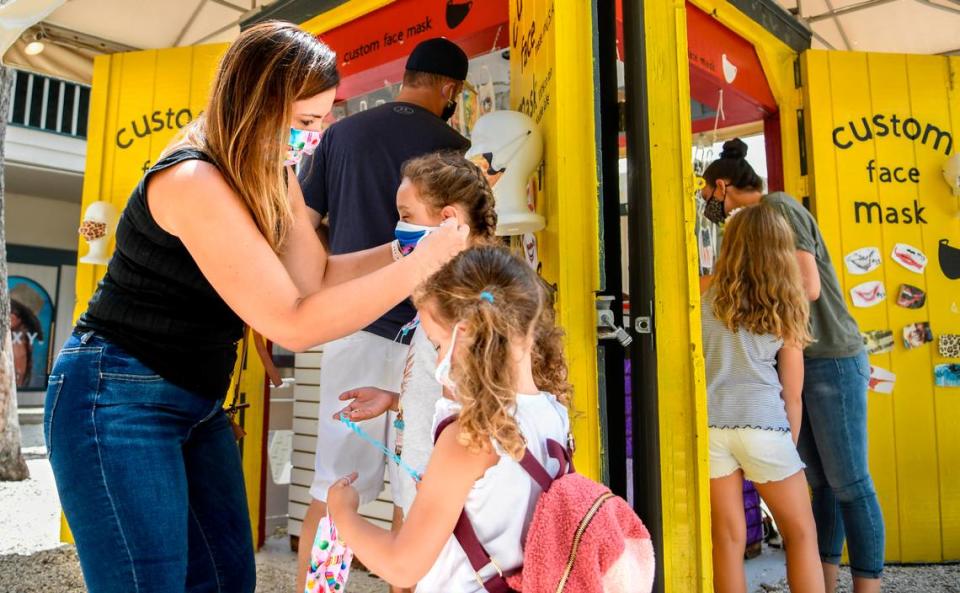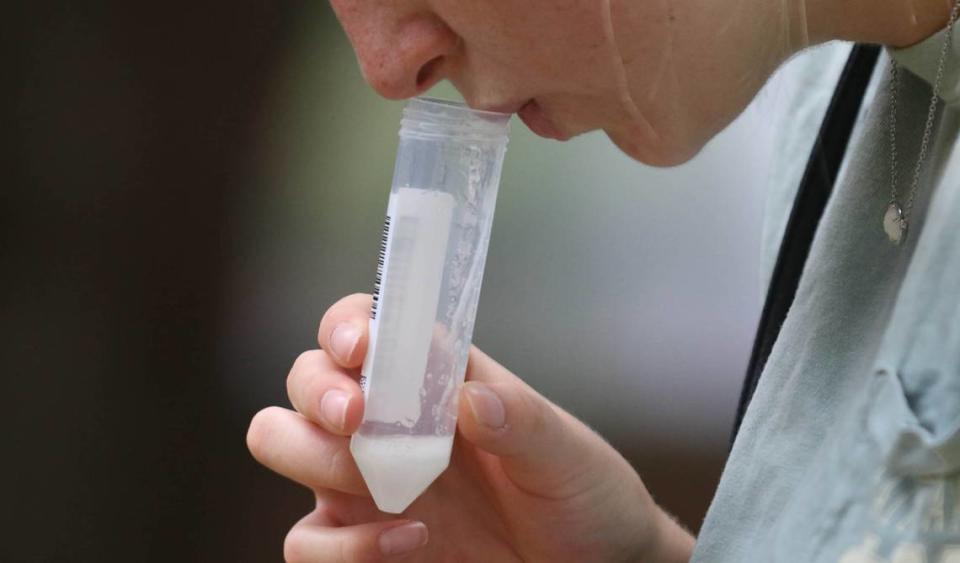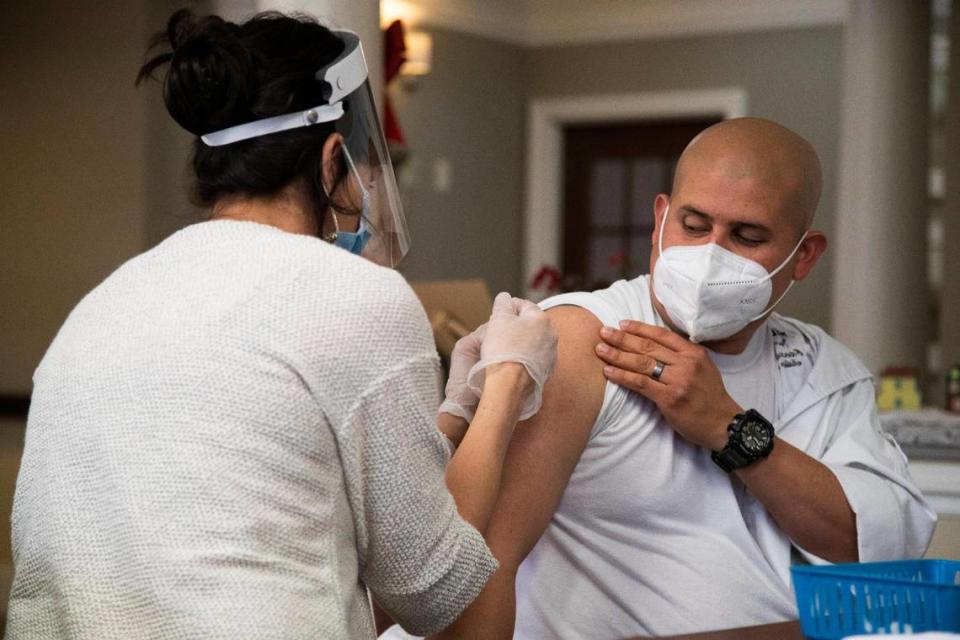What’s the future of COVID-19 in SC? Another summer surge? Here’s what experts say
South Carolina’s coronavirus vaccination campaign is slowing to a crawl.
It’s now clear that the Palmetto State will almost certainly fail to at least partially vaccinate 70% of its adult residents by July 4.
President Joe Biden wants 70% of all Americans to have at least one dose by the holiday.
Only 51.9% of S.C. residents 18 or older have received a shot, though. And if the state’s current inoculation rate holds steady through June, just 55% of the adult population may be at least partially vaccinated by early July.
But South Carolina’s vaccination troubles should not distract residents from the rapidly improving COVID-19 conditions around the state, experts say.
Regardless of a possible uptick in cases this summer, life will mostly return to normal in the coming weeks, and it’s extremely unlikely that hospitals and health care systems will become overwhelmed, said Dr. Helmut Albrecht, medical director of the Center for Infectious Diseases Research and Policy at Prisma Health and the University of South Carolina.
“This will progressively dry up,” Albrecht said of the state’s outbreak. “It’s pretty striking how the new caseload has gone down.”
A surge is possible
COVID-19 cases might spike among unvaccinated residents after the Fourth of July, Albrecht said, or as crowds of summertime visitors pack into beach towns along the coast.
But any potential July upswing will pale in comparison to the wave of holiday infections recorded this past winter, he said, and will also fail to rival last year’s Sun Belt surge.
Hospital capacity concerns and PPE shortages are no longer expected, given that the state is averaging about 130 new cases per day, 83.6% of seniors have been inoculated and COVID-19 hospital admissions have plummeted since January.
The coronavirus’ spread is also shifting into younger age groups, who are more prone to mild cases.
Lior Rennert, a biostatistician at Clemson University, said fewer people will be susceptible to the pathogen overall this summer, thanks in part to previous infections.
The Medical University of South Carolina has estimated that 64% of the state’s population has some form of COVID-19 immunity. That finding hinges on the assumption that 32% of S.C. residents are protected because they contracted SARS-CoV-2, the novel coronavirus.
Regardless of whether a surge occurs next month, though, residents should expect COVID-19 to stick around for years to come, becoming endemic and less lethal, mirroring the flu and other coronaviruses.
“I never thought it was realistic to stop every SARS-CoV-2 infection,” Rennert said. “The thing I’ve always paid attention to is, ‘Can we control the pandemic?’ And I think that ... we will be able to. Are there people who are putting themselves at unnecessary risk? Yes. Do I wish they were taking vaccines? Yes.”

Variants are a wildcard
A new coronavirus variant that completely or largely escapes the vaccines, however, could complicate matters and force scientists to throw their predictions out the window.
New forms of the virus that are currently circulating around the world remain susceptible to the vaccines, even though some like the Beta variant, which was first discovered in South Africa last year, are seemingly able to sidestep part of the body’s vaccine-induced immune response. South Carolina as of June 2 had recorded 140 Beta cases.
If the coronavirus is given enough time to naturally mutate, a variant might eventually form that renders the vaccines ineffective, said Dr. Linda Bell, the state’s top epidemiologist.
That’s why it’s important for public health officials to continue vaccinating as many residents as possible, she and other experts say, even as cases decline and COVID-19 trends improve.
“The variants that concern me the most,” Bell said, “are actually ones that have not yet emerged.”
Vaccine booster shots could be deployed in the future to help fend off variants, but there’s also reason to hope that the coronavirus will never develop into some super-charged, vaccine-dodging pathogen.
Look to the E484K coronavirus mutation, or the “Eek” mutation, which has been found in different variants around the globe, including Beta.
Morgane Rolland, chief of viral genetics for the Henry M. Jackson Foundation for the Advancement of Military Medicine with the U.S. Military HIV Research Program at the Walter Reed Army Institute of Research, previously said that the detection of E484K across the world appears to suggest that SARS-CoV-2 has a limited amount of room to mutate and evade vaccine-induced immune responses.
“The space for SARS-CoV-2 is very tiny,” Rolland said. “There are not that many pathways for escape.
“I think there will be variants that could still come and happen. But if the number of infected cases really go down, then there’s less opportunity for the virus to mutate and evolve.”

Vaccine hesitancy poses a major challenge
The ongoing battle to convince unvaccinated South Carolinians to roll up their sleeves for a shot will also continue for months to come.
The state is working to combat vaccine apathy, mistrust and opposition in hopes of eventually hitting the 70% inoculation threshold.
Some residents are still wary of the shots because of their speedy development last year. Others attribute their vaccine skepticism to political beliefs or conspiracy theories.
Dr. Edward Simmer, director of the S.C. Department of Health and Environmental Control, hopes to address these issues via inoculation events at local festivals and vaccine incentives, like the agency’s new “Shot and a Chaser” campaign, through which young adults can snag a free beer or soda after getting a jab at certain breweries.
Yet health experts remain optimistic that, regardless of the state’s success in boosting vaccine uptake in the months to come, and barring a new variant, the end of South Carolina’s outbreak is finally in sight.
“Right now, things are on a good trajectory,” Rennert said, “and unless there is a really bad variant that’s introduced into the population, we are unlikely going to see the pandemic take a turn for the worst.”
Note: Data in this story are current as of late Thursday. The July 4 vaccine projections rely on data published by the Centers for Disease Control and Prevention and the S.C. Department of Health and Environmental Control.


 Yahoo Movies
Yahoo Movies 
